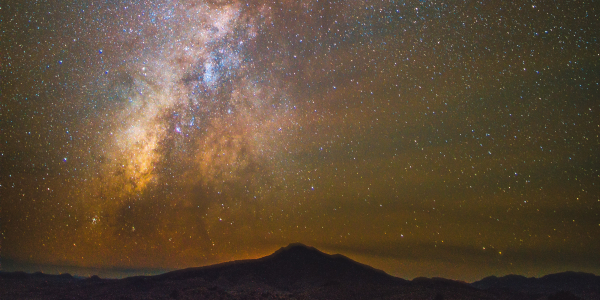St. Louis Astronomical Society Meeting: Preserving the Night Sky
Stephen Hummel is a dark skies specialist at the McDonald Observatory in Fort Davis, Texas. His projects involve issues related to night-sky light pollution and community astronomy outreach. Mr. Hummel is also an amateur astrophotographer. Prior to moving to West Texas in 2018, he lived in St. Louis and was active in the Astronomical Society of Eastern Missouri.
For much of the country, artificial lights flood the night sky, blocking the view of the Milky Way and thousands of faint stars. Most of this sky light is harmful, wasting electricity and causing environmental problems, particularly for animals and migrating birds. Efforts are being made to reduce light pollution in cities and towns, and preserve the darkness of rural areas. McDonald Observatory and many partners are working to establish the Greater Big Bend International Dark Sky Reserve (DSR) in the Big Bend region of Far West Texas and Northern Mexico. Once completed and certified by the International Dark Sky Association (IDA), the reserve will encompass over 15,000 square miles of land. It will be among the largest reserves of its kind in the world, and help to preserve the night sky for decades to come. Mr. Hummel will discuss the many lessons learned during this project and present tips on how to mitigate light pollution in your own night sky.
The St. Louis Astronomical Society is an organization for individuals interested in astronomy and telescopes. The public is invited to attend its meetings, telescope observing sessions, and special events. For more information about Astronomical Society events, please visit www.slasonline.org or call 314-962-9231. The event, cosponsored by NASA's Missouri Space Grant Consortium at Washington University, is open to the public free of charge.

